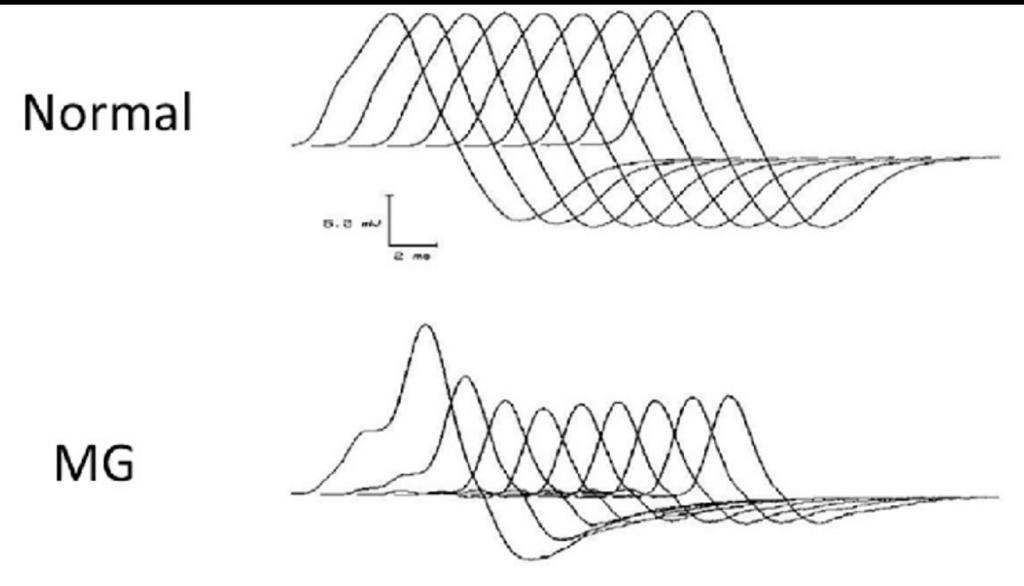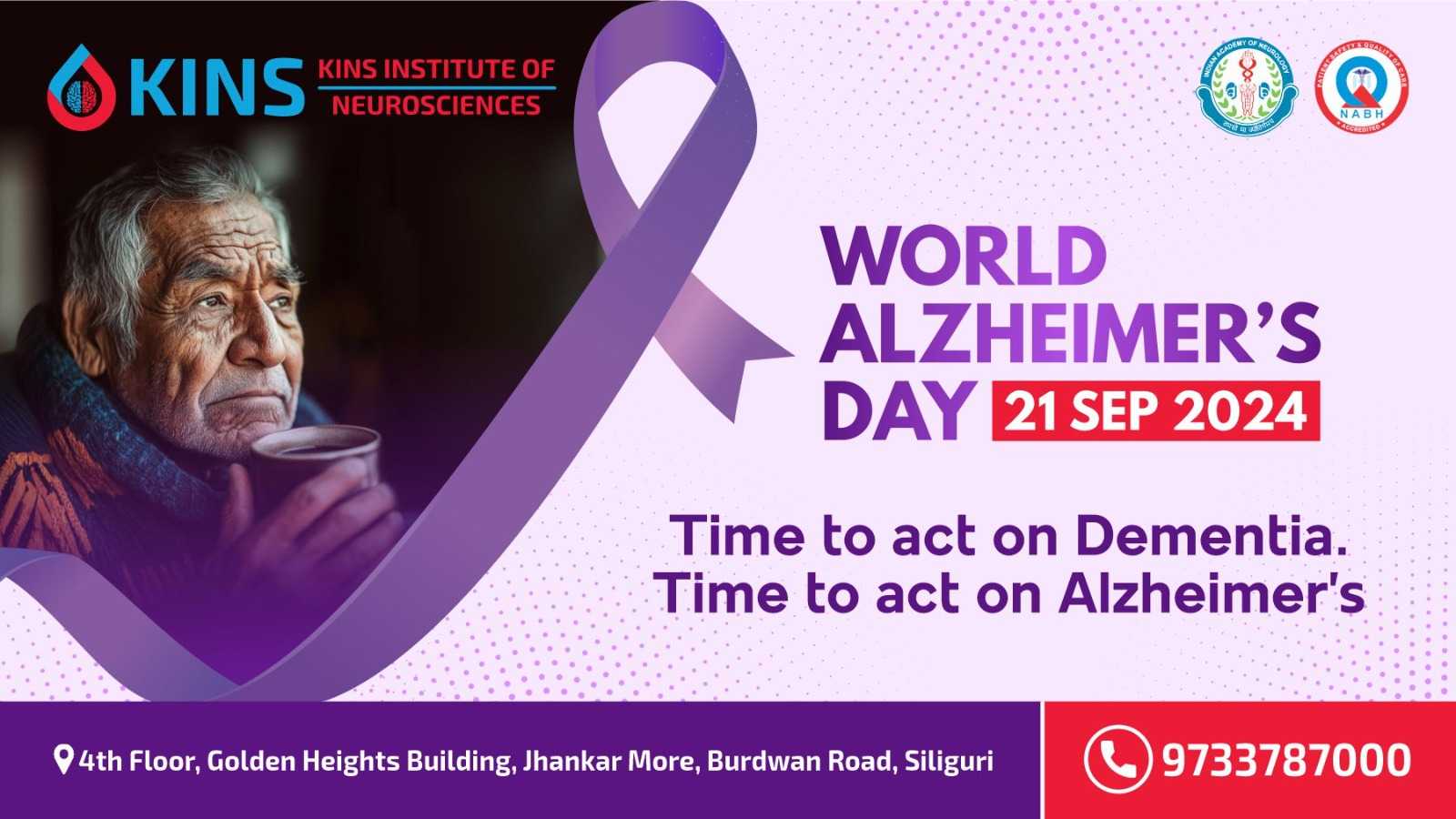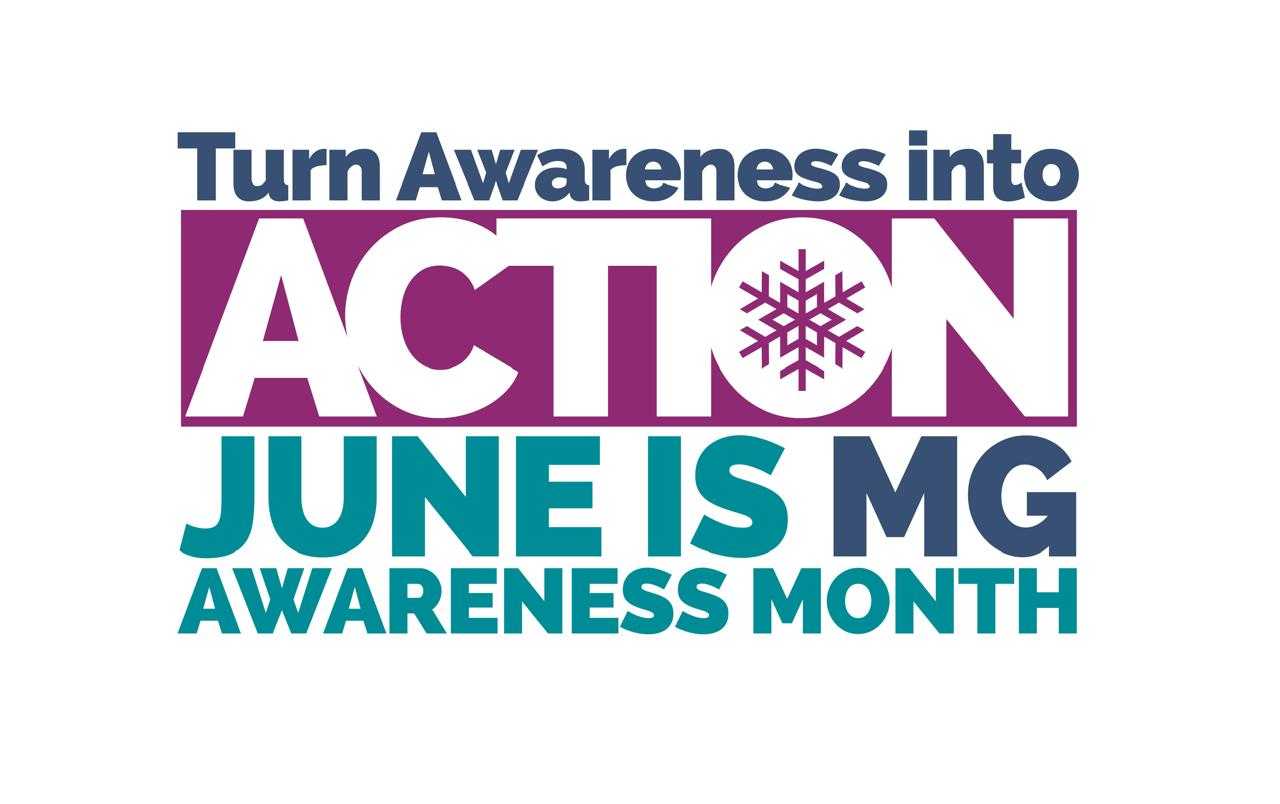
Myasthenia gravis is an acquired organ specific autoimmune disorder of neuromuscular transmission resulting from antibodies directed against the Acetylcholine receptor (AChR), Muscle specific tyrosine kinase (MuSK) and Lipoprotein related protein 4 (LRP4).
Associated antibodies
|
|
|
The incidence of myasthenia is slightly greater in women than in men (3:2) and the estimated prevalence is around 20 per 100000 populations.
Estimated Prevalence – 20/100000
|
M:F::3:2 |
The clinical hallmark of myasthenia gravis is fluctuating weakness and abnormal fatigability of voluntary skeletal muscles that improve with rest. Drooping of eyelid, double vision, difficulty swallowing, slurring of speech or change of voice, and proximal limb weakness are the commonest symptoms. Occasionally, patients may present with difficulty breathing due to respiratory muscle weakness known as myasthenic crisis. Stressful life events, viral infections, pregnancy and delivery may precipitate the development of myasthenic crisis.

Common symptoms
|
|
|
|
|
|
Diagnosis is mainly clinical supported by electrophysiologic (RNST,SFEMG) and lab tests (AChR ab, anti MUSK ab). MG is associated with other autoimmune diseases in about 30% of cases, eg. thyroid diseases, RA, SLE etc.
Diagnosis
|
|
|
|
|

Acetylcholine esterase inhibitors e.g. pyridostigmine, Neostigmine etc. and immunosuppressive/immunomodulating drugs e.g. Azathioprine, Mycophenolate mofetil, Methotrexate etc. are the mainstay of treatment. Intravenous or oral steroids and Plasma exchange (PLEX) or IVIG are used especially in emergent situations like worsening of symptoms or Myasthenic crisis as rescue therapy. Thymectomy is a surgical modality recommended for all patients with thymoma and for patients under 60 years of age who have mild to moderate muscle weakness due to Myasthenia Gravis.

Treatment modalities
|
|
|
|
Although the number of patients with MG continues to rise, it is still a rare disease. Further epidemiological research with a view to establish population registries and to estimate economic impact of disease on population as well as quality of life of patients with MG is needed.
June is observed as Myasthenia gravis awareness month with aims to raise awareness amongst general mass, engage patients suffering from this disease to come together and talk of their problems, fears and expectations, and attract attention of policy makers to accord funds for myasthenia related researches and make the treatment of MG more affordable.
Dr. Swayam Prakash MD, DM, SCE, FEBN, FRCP
Sr.Consultant & HOD - Kins Institute of NeuroSciences




